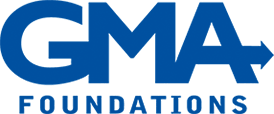
The philanthropy sector is rising to meet the grave societal impacts of the COVID-19 public health crisis, in ways that show urgency, flexibility, intelligence, and compassion. In this brief outline, GMA offers ideas and resources for foundations and giving programs joining as first responders, and invites conversation about your preferred course of action.
Urgency. Purpose. Strategy.
Break from tradition. The impact of this pandemic on the historically most vulnerable populations is enormous and unfolding. The nonprofit organizations that serve our communities and these individuals in the best of times are under extreme stress. Your support now is essential.
Call a special meeting with your board, your colleagues, or family to sketch a COVID-19 strategy. In your considerations,
- Stick to your values—for guidance and unity.
- Rethink this year’s budget. For foundations, 5 percent payout is a minimum requirement not a ceiling. Add a budget line for COVID-19 disaster relief.
- Stay close to what/who you know. Learn from your current grantees about their greatest needs. Identify opportunities for support beyond grants.
- Maximize flexibility for nonprofit organizations. Consider accelerated grantmaking and lifting or extending grant restrictions and reporting requirements. More on this below.
- Collaborate; give collectively. Fund disaster relief through community foundation and United Way funds. Talk to other funders about responsive approaches.
Flexible. Proactive.
The most direct way of responding to this crisis is to maximize the flexibility of your existing grant program.
Proactively contact nonprofit organizations to learn how they are affected by virus-related constraints. Which programs have been put on hold? Has fundraising suffered? Have employees been laid off? Depending on their needs, reshape your giving to:
- Offer flexibility in application deadlines, required narratives and attachments, grant amounts, and reporting requirements.
- Consider emergency grants for retaining employees or covering expenses of leave required under the new Families First Coronavirus Response Act. Create a rapid response fund, with a very lean process, for small grants that address an immediate need.
- Accelerate grants that would usually have been awarded later in the year to organizations that would put the funds to good use now.
- Lift restrictions on grant funds – both those made this year and those to come. Redirect funds from programs to unrestricted general operating support; give management leeway in allocating their resources.
- Increase funding to current grantees. Address the challenges they are encountering. Add an additional year of funding to ease their current fundraising effort. Support them through this period so they will still be here when rebuilding begins.
Pivot to the practical too. Ask grantees whether they would prefer an electronic funds transfer (EFT) to receiving a check in the mail. This may ease an administrative challenge for those working remotely or with greater demands on their time.
Intelligence and Compassion.
The call for urgency and flexibility is coupled with a deep appreciation for long-term needs and goals. Things are changing quickly, and a funders’ measured response is also warranted.
Funders may choose to break from their mission-related giving temporarily and focus on disaster relief. There is also wisdom in a longer-range plan to fund the rebuilding effort once that begins.
In times of disaster, philanthropy responds in extra-ordinary ways. The suggestions that follow are a blend of high impact and simple human connectedness.
Collective Giving
Community foundations, United Way chapters, and many others are launching emergency response funds. We anticipate the funds will operate nimbly and make grant decisions on a regular, usually weekly, basis. Either directly to individuals or through nonprofit partners, they will meet most immediate needs for housing, food, and healthcare. See the resource list below for particulars.
Connecting Socially, Virtually
Overcome the difficulties of decision-making from a distance. Rather than delay grant decisions, adapt your practices.
Join a virtual discussion of issues facing a particular field or geography. Learn from other funders and from topical experts. See the resource list below for particulars.
Kindness
If cancelling in-person conferences, rather than request a refund, ask that the venue distribute the amounts paid to its hourly employees.
Now is the time to give more. What does that mean to your grantmaking? Please contact Phil Hall or your GMA relationship manager to talk through your response to the COVID-19 upheaval.
